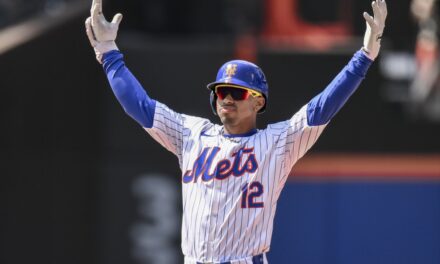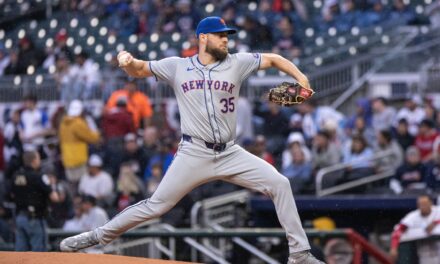Yesterday, Mets owner Fred Wilpon met with reporters and responded to some questions. I was intrigued, but not surprised to this particular line of questioning:
Q: An author said you were selling the team because of the Madoff scandal (Bernie Madoff pleaded guilty to 11 felonies involving a Ponzi scheme). Were those claims off-base?
Wilpon: I’ve always said, if it’s up to me, my family will be involved for the next generations. That’s all I can tell you. I can’t say that about any other asset we own.
Q: But are there external factors that would compel you to sell?
Wilpon: No.
This offseason, what we heard more than anything else on this site was not so much about how we should have signed John Lackey or Matt Holliday, but just a longing for the Wilpons to sell the team.
Many Mets fans firmly believe that the Mets are incapable of putting together a string of good years under present ownership, and in a way I agree with them. Oh sure, there will be years when the Mets can get it together for one year and win it all, heck we’ve seen that before, but what we’ve never seen was a decade long run of championship caliber baseball or just playing meaningful baseball in September.
It’s been a history of peaks and valleys… Agony (most of the time) and ecstasy (not enough)…
You can’t blame the Wilpons for not spending money because indeed they have, and lot’s of it. But there’s this culture that surrounds the Mets that just makes it difficult for the organization to operate as one cohesive unit. There was the friction between Davey Johnson and the Wilpons in 1986, but Cashen loved him so he wasn’t going anywhere. The rift between Bobby Valentine, Steve Phillips and the front office was legendary. Buddy Harrelson and Jeff Torborg both felt they were scapegoats and felt they were managing the team with their hands tied behind their backs. Willie Randolph felt he was being undermined every step of the way after his honeymoon period was over. It’s stuff like that which makes it difficult to run and manage a team for a GM or manager. This year will be no different as both Manuel and Omar will be operating while sitting in the proverbial hot-seats.
That stress and tension can have a carry-over effect with the players who sometimes feel as if they have to perform to save their GM or managers job. Both David Wright and Billy Wagner said as much shortly before the team axed Willie Randolph. And don’t think this derisive culture had nothing to do with both collapses in 2007 and 2008. The tension had become so thick in the clubhouse you could cut it with a knife, that’s what some of the Mets beat reporters were saying at the time.
The culture of the Wilpons almost takes the fun out of the game for the players. The pastime becomes a grind instead of a game. The expectations of playing in the sports mecca and media capital of the world is harrowing enough for these players. What they need most from the ownership is a calm atmosphere, a clear vision, a general manager with full autonomy that has a solid track record and the confidence to hold down the position, and a manager who can communicate all of that to his players and doesn’t have to keep looking over his shoulder.
As longs as the Wilpons stay in control, the names may change at the GM and manager positions, but the truth is that the song remains the same.














